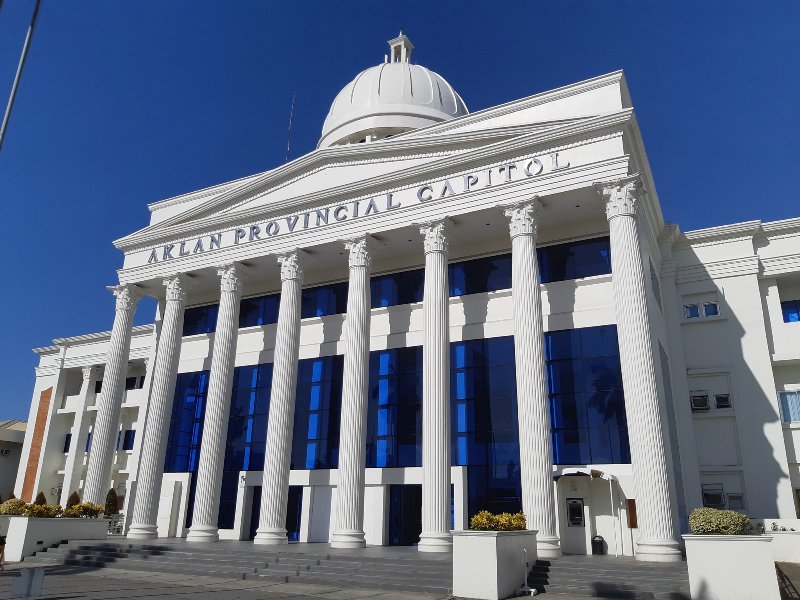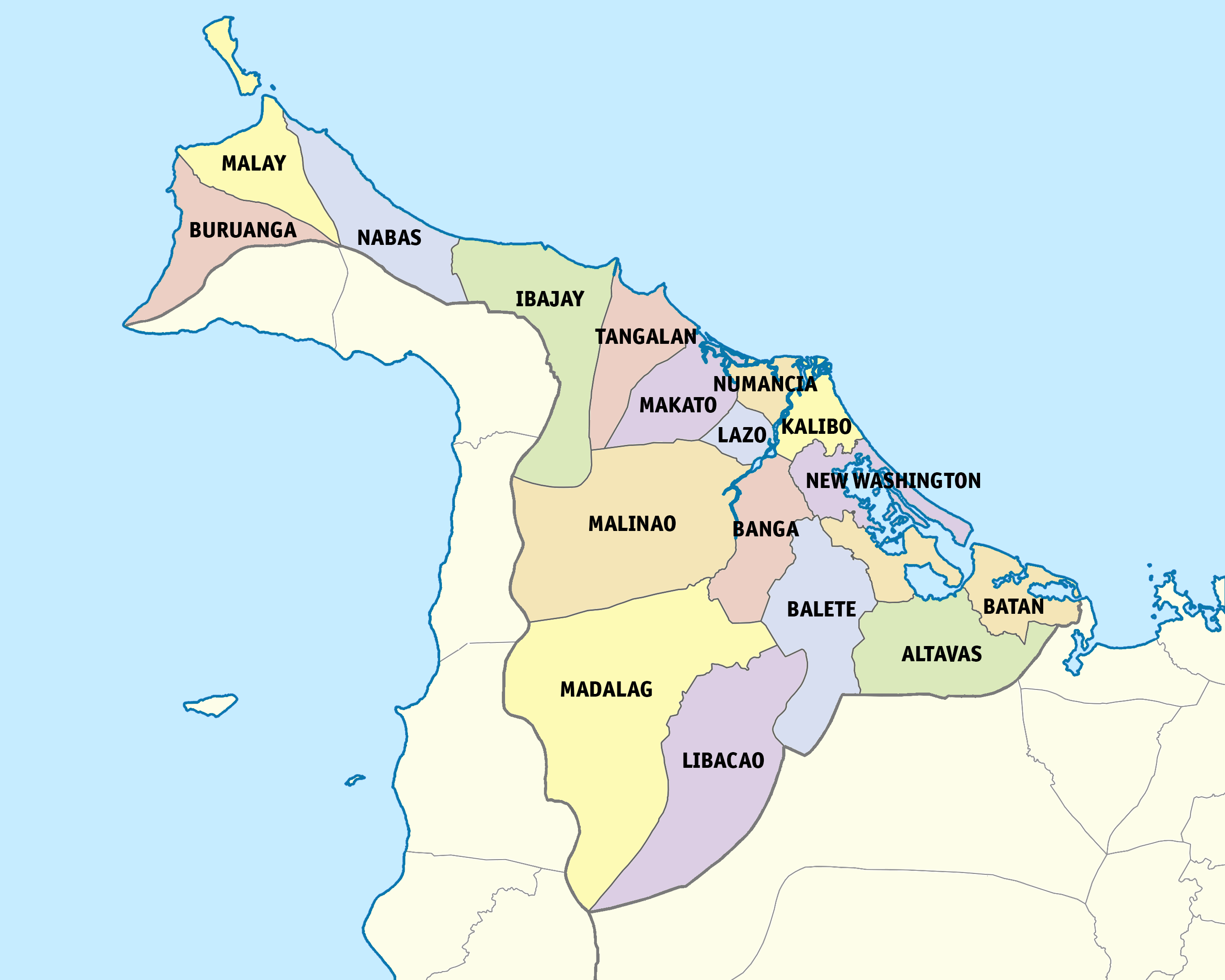|
ûngelo FernûÀndez
ûngelo FernûÀndez is one of the Nineteen Martyrs of Aklan (Spanish: Diecinueve mûÀrtires de Aklan), Filipino patriots who were executed by musketry in Kalibo, Aklan, Philippines on March 23, 1897 2: a.m, for cooperating with the Katipunan during the Philippine Revolution against Spain. Personal and family life ûngelo FernûÀndez was born from a Kalibonhon father and a Tagalog mother. He was a businessman engaged in a buy-and-sell business just before the outbreak of the revolution before the close of the 19th century. He was one of those men who led a busy and moderately provided life when fate swept him off his feet and involved him in that struggle which resulted to his gruesome death. He was happily married to Eugenia "Senyang" FernûÀndez (Arcenia in other accounts) of Kalibo whom he did not have a child after six years of marriage. Forced entry to the Katipunan One day when all paths led to Mabilo in Kalibo, Aklan where men submitted themselves to blood compact (also known ... [...More Info...] [...Related Items...] OR: [Wikipedia] [Google] [Baidu] |
Nineteen Martyrs Of Aklan
The Nineteen Martyrs of Capiz, more commonly known anachronistically as the Nineteen Martyrs of Aklan refers to a group of Filipino revolutionaries in Panay who were executed for advancing the cause of the Katipunan during the Philippine Revolution against Spain. All individuals were native to towns in Capiz, which are now in the modern province of Aklan. Background Former Filipino migrant workers Francisco del Castillo and Candido Iban won a lottery while there were in Australia. They returned to Manila in the Philippines in 1894 or 1895 to join the Katipunan, a revolutionary group seeking independence of the Philippines from Spain. They donated part of their winnings to help fund the a printing press that would be used for the publication of ''Kalayaan'', the Katipunan's newspaper. The first issue was released in March 1896. The two were later directed by Andres Bonifacio to establish a chapter of the Katipunan in the Visayas. Del Castillo died in a fight on March 17, 1897 whi ... [...More Info...] [...Related Items...] OR: [Wikipedia] [Google] [Baidu] |
Kalibo
Kalibo, officially the Municipality of Kalibo (Aklanon language, Aklanon: ''Banwa it Kalibo''; Hiligaynon language, Hiligaynon: ''Banwa sang Kalibo''; ), is a municipality of the Philippines, municipality and capital of the Philippine Province, Province of Aklan, Philippines. According to the 2020 census, it has a population of 89,127 people. Kalibo is located in the north-west of Panay island and also, it is the most populous town in Aklan. It is the main transportation hub for the resort island of Boracay. The municipality is known for the Ati-Atihan festival; the semi-urban and multi-awarded mangrove forest Bakhawan Eco-Park and piûÝa-weaving, which was inscribed to the UNESCO Intangible Cultural Heritage List in 2023. Etymology The term ''Kalibo'' comes from the Aklanon language, Aklanon word ''sangkûÂ lûÙbo'', ("one thousand"), reputedly the number of native Ati people, Ati who attended the first Catholic Mass celebrated there. Kalibo was originally spelled as ''Calivo''. ... [...More Info...] [...Related Items...] OR: [Wikipedia] [Google] [Baidu] |
Aklan
Aklan, officially the Province of Aklan, is a Provinces of the Philippines, province in the Western Visayas region of the Philippines. Its capital and largest town is Kalibo. The province is situated in the northwest portion of Panay, Panay Island, bordering Antique (province), Antique to the southwest, and Capiz to the southeast. Aklan faces the Sibuyan Sea and Romblon province to the north. Aklan is most well-known for Boracay, a resort island 0.8 kilometer north of the tip of Panay. It is known for its white sand beaches and is considered one of the more prominent destinations in the country. The Ati-Atihan festival, Ati-Atihan Festival of Kalibo has also been known worldwide, hence declared "The Mother of all Philippine Festivals." It is an annual celebration held on the third Sunday of January to honor the Santo NiûÝo de Cebû¤, Santo NiûÝo (Infant Jesus). The festival showcases tribal dancing through the town's main streets to the tune of ethnic music, with participants in in ... [...More Info...] [...Related Items...] OR: [Wikipedia] [Google] [Baidu] |
Philippines
The Philippines, officially the Republic of the Philippines, is an Archipelagic state, archipelagic country in Southeast Asia. Located in the western Pacific Ocean, it consists of List of islands of the Philippines, 7,641 islands, with a total area of roughly 300,000 square kilometers, which are broadly categorized in Island groups of the Philippines, three main geographical divisions from north to south: Luzon, Visayas, and Mindanao. With a population of over 110 million, it is the world's List of countries and dependencies by population, twelfth-most-populous country. The Philippines is bounded by the South China Sea to the west, the Philippine Sea to the east, and the Celebes Sea to the south. It shares maritime borders with Taiwan to the north, Japan to the northeast, Palau to the east and southeast, Indonesia to the south, Malaysia to the southwest, Vietnam to the west, and China to the northwest. It has Ethnic groups in the Philippines, diverse ethnicities and Culture o ... [...More Info...] [...Related Items...] OR: [Wikipedia] [Google] [Baidu] |
Katipunan
The Katipunan (), officially known as the (; ) and abbreviated as the KKK, was a revolutionary organization founded in 1892 by a group of Filipino nationalists Deodato Arellano, Andrûˋs Bonifacio, Valentin Diaz, Ladislao Diwa, Josûˋ Dizon, and Teodoro Plata. Its primary objective was achieving independence from the Spanish Empire through an armed revolution. It was formed as a secret society before its eventual discovery by Spanish authorities in August 1896. This discovery led to the start of the Philippine Revolution. Historians generally placed the date of its founding in July 1892 shortly after the arrest and deportation of Filipino author and nationalist Josûˋ Rizal to Dapitan in Mindanao. Rizal was one of the founders of the nascent La Liga Filipina, which aimed for a Filipino representation to the Spanish Parliament. Many members of the Katipunan, including Bonifacio himself, were members of that organization. However, recent discovery of documents of the organization s ... [...More Info...] [...Related Items...] OR: [Wikipedia] [Google] [Baidu] |
Mabilo
Kalibo, officially the Municipality of Kalibo ( Aklanon: ''Banwa it Kalibo''; Hiligaynon: ''Banwa sang Kalibo''; ), is a municipality and capital of the Province of Aklan, Philippines. According to the 2020 census, it has a population of 89,127 people. Kalibo is located in the north-west of Panay island and also, it is the most populous town in Aklan. It is the main transportation hub for the resort island of Boracay. The municipality is known for the Ati-Atihan festival; the semi-urban and multi-awarded mangrove forest Bakhawan Eco-Park and piûÝa-weaving, which was inscribed to the UNESCO Intangible Cultural Heritage List in 2023. Etymology The term ''Kalibo'' comes from the Aklanon word ''sangkûÂ lûÙbo'', ("one thousand"), reputedly the number of native Ati who attended the first Catholic Mass celebrated there. Kalibo was originally spelled as ''Calivo''. The town of Kalibo was originally called ''Akean'' by the inhabitants, similar to the name of the river nearby. The ... [...More Info...] [...Related Items...] OR: [Wikipedia] [Google] [Baidu] |
Francisco Del Castillo
Francisco is the Spanish and Portuguese form of the masculine given name ''Franciscus''. Meaning of the name Francisco In Spanish, people with the name Francisco are sometimes nicknamed " Paco". San Francisco de AsûÙs was known as ''Pater Communitatis'' (father of the community) when he founded the Franciscan order, and "Paco" is a short form of ''Pater Communitatis''. In areas of Spain where Basque is spoken, " Patxi" is the most common nickname; in the Catalan areas, "Cesc" (short for Francesc) is often used. In Spanish Latin America and in the Philippines, people with the name Francisco are frequently called " Pancho". " Kiko"and "Cisco" is also used as a nickname, and "Chicho" is another possibility. In Portuguese, people named Francisco are commonly nicknamed " Chico" (''shûÙco''). People with the given name * Pope Francis (1936-2025) is rendered in the Spanish, Portuguese and Filipino languages as Papa Francisco * Francisco Acebal (1866ã1933), Spanish writer and au ... [...More Info...] [...Related Items...] OR: [Wikipedia] [Google] [Baidu] |
Aklan Freedom Shrine
Aklan, officially the Province of Aklan, is a province in the Western Visayas region of the Philippines. Its capital and largest town is Kalibo. The province is situated in the northwest portion of Panay Island, bordering Antique to the southwest, and Capiz to the southeast. Aklan faces the Sibuyan Sea and Romblon province to the north. Aklan is most well-known for Boracay, a resort island 0.8 kilometer north of the tip of Panay. It is known for its white sand beaches and is considered one of the more prominent destinations in the country. The Ati-Atihan Festival of Kalibo has also been known worldwide, hence declared "The Mother of all Philippine Festivals." It is an annual celebration held on the third Sunday of January to honor the Santo NiûÝo (Infant Jesus). The festival showcases tribal dancing through the town's main streets to the tune of ethnic music, with participants in indigenous costumes and gear. History Early history Aklan is believed to have been settled in anc ... [...More Info...] [...Related Items...] OR: [Wikipedia] [Google] [Baidu] |
Fidel V
Fidel most commonly refers to: * Fidel Castro (1926ã2016), Cuban communist revolutionary and politician * Fidel Ramos (1928ã2022), Filipino politician and former president Fidel may also refer to: Other persons * Fidel (given name) Film * Fidel (2002 film), ''Fidel'' (2002 film), a 2002 mini-series by David Attwood about Castro * Fidel (2009 film), ''Fidel'' (2009 film), a 2009 Filipino indie film * ''Fidel: The Untold Story'', a 2001 a documentary about Castro Other uses * Fidel, the letters of the Geò§ez script used in Ethiopia and Eritrea * Vielle, a musical instrument and forerunner of the fiddle * Fidel (imprint), an imprint of VDM Publishing devoted to the reproduction of Wikipedia content See also * Fidû´le (other) {{disambiguation ... [...More Info...] [...Related Items...] OR: [Wikipedia] [Google] [Baidu] |
National Historical Commission Of The Philippines
The National Historical Commission of the Philippines (NHCP; ) is a government agency of the Philippines. Its mission is "the promotion of Philippine history and cultural heritage through research, dissemination, conservation, sites management and heraldry works." As such, it "aims to inculcate awareness and appreciation of the noble deeds and ideals of our heroes and other illustrious Filipinos, to instill pride in the Filipino people and to rekindle the Filipino spirit through the lessons of history." History While the current form of the NHCP was established in 1972 as part of the reorganization of government after President Ferdinand Marcos' declaration of martial law, its roots can be traced back to 1933 when the American colonial Insular Government first established the Philippine Historical Research and Markers Committee (PHRMC). Philippine Historical Research and Markers Committee (1933) The Philippine Historical Research and Markers Committee was created by U.S. G ... [...More Info...] [...Related Items...] OR: [Wikipedia] [Google] [Baidu] |
People Of The Philippine Revolution
The term "the people" refers to the public or common mass of people of a polity. As such it is a concept of human rights law, international law as well as constitutional law, particularly used for claims of popular sovereignty. In contrast, a people is any plurality of persons considered as a whole. Used in politics and law, the term "a people" refers to the collective or community of an ethnic group or nation. Concepts Legal Chapter One, Article One of the Charter of the United Nations states that "peoples" have the right to self-determination. Though the mere status as peoples and the right to self-determination, as for example in the case of Indigenous peoples (''peoples'', as in all groups of indigenous people, not merely all indigenous persons as in ''indigenous people''), does not automatically provide for independent sovereignty and therefore secession. Indeed, judge Ivor Jennings identified the inherent problems in the right of "peoples" to self-determination, as i ... [...More Info...] [...Related Items...] OR: [Wikipedia] [Google] [Baidu] |





